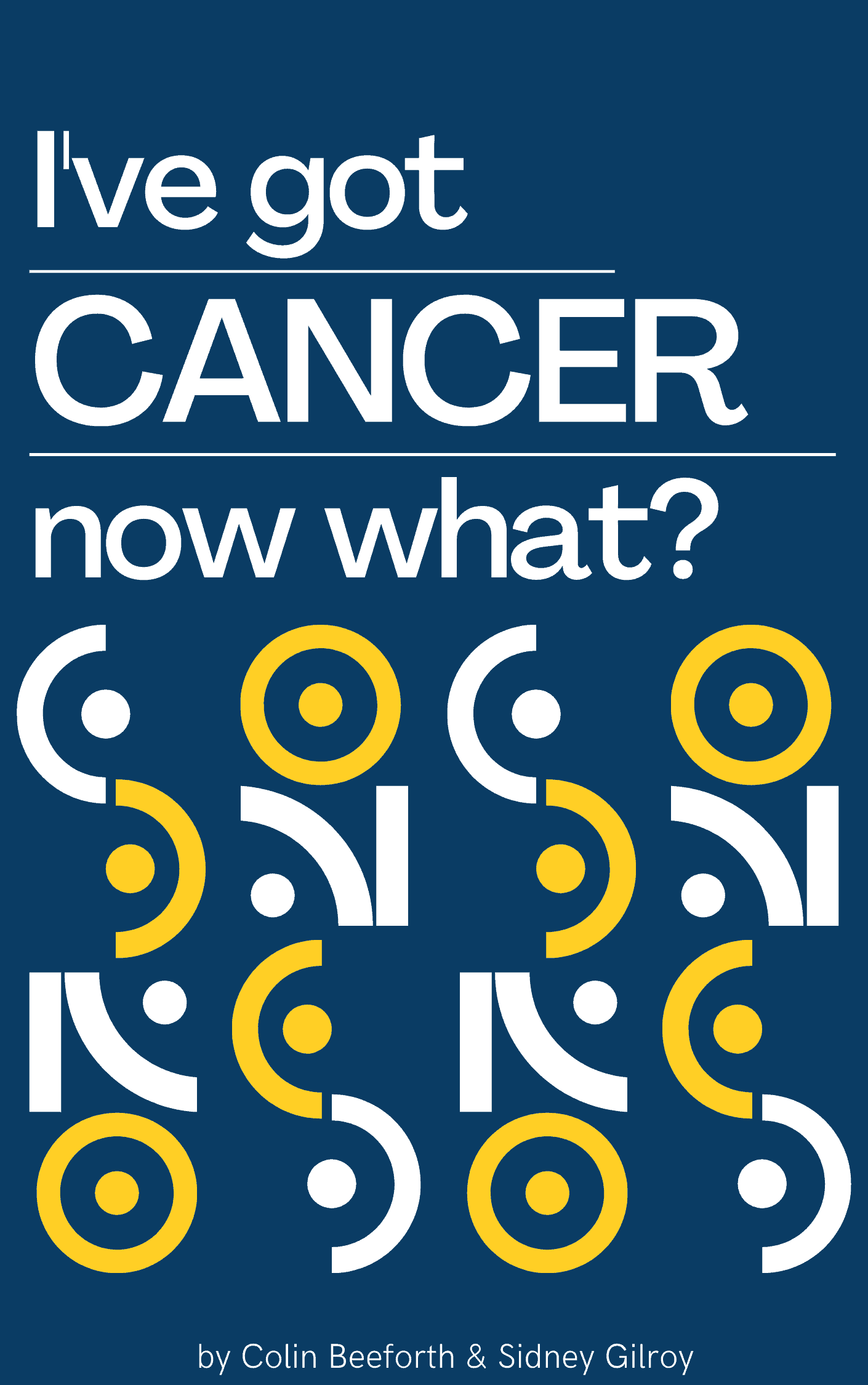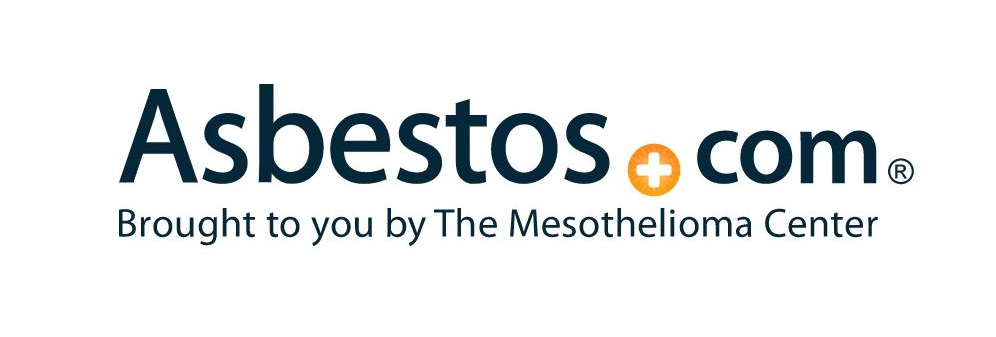
Resources
I've got Cancer, now what? - the book
We, the authors of this book and website, are not medical doctors. We are normal human beings who have lived normal lives and who have done normal things like gotten married, raised a family, followed a career, and experienced all the up’s and down’s that life has to offer.
Until that day. The day the uninvited guest knocked on our front door and simply refused to take no-thank you for an answer. Through our research, which spans many years, we hope to console you if you are battling cancer at this very moment and we hope to give you answers to questions that sometimes gets lost in the medical terminology or simply the daily battle that having cancer can be. We do this free of charge.
Through this book, which is packed with the latest state of care and
treatment and the latest scientific developments in the fight against cancer, we
want to give you KNOWLEDGE.
This document is best read when you download it in PDF-format
More Resources
Mesothelioma

References and Disclaimer
1. KTE
References
All references used in the book are clearly annotated and linked in the text. There is also a thorough references appendix at the end of the book. Here we wish to introduce you to some of the main references for those who wish to read wider.
Please note that all links to books are to Amazon.com. This is for convenience only and the books are also mostly available on the sites of all the other major online booksellers.
1.1 The science of cancer
Dr Robert A Weinberg
The biological foundations of our book were laid by Dr Robert Weinberg and his exceptional textbook The Biology of Cancer. Dr Weinberg is Director of the Ludwig Center for Molecular Oncology at MIT, the Daniel K. Ludwig Professor for Cancer Research within MIT’s Department of Biology and a founding member of the Whitehead Institute for Biomedical Research. He is first and foremost a researcher. His team isolated the first human cancer-causing gene, the Ras oncogene (an accelerator), and the first known tumour suppressor gene, Rb, the retinoblastoma gene (a brake).
But he is an excellent author as well. His textbook is fairly technical, but readable if you are scientifically inclined and willing to put time into it. He has also written two books on the introduction of genetics into cancer thought and treatment, intended for a wider readership: One Renegade Cell: How Cancer Begins (1999), and Racing to the Beginning of the Road: The Search for the Origin of Cancer (1996). We would recommend you start with "One Renegade Cell".
Weinberg also collaborated with Douglas Hannahan in the writing of two of the most cited papers in cancer research, The Hallmarks of Cancer (2000) and Hallmarks of Cancer: The Next Generation (2010). These papers identify the key features (hallmarks) which are common across all cancers.
Professor Charles Swanton
Prof.
Charles Swanton is a British physician scientist
specialising in oncology and cancer research. He is a senior group leader at
London's Francis Crick Institute, Professor in Cancer and thoracic medical
oncologist at University College London and University College London
Hospitals, co-director of the Cancer Research UK (CRUK) Lung Cancer Centre of
Excellence, and Chief Clinician of Cancer Research UK.
His research on the role of the heterogeneity and the evolution of tumours in treatment resistance led to an important next step in the development of our model. In particular it was two papers covered and
referenced in the Cancer Research UK (CRUK) science blog which were most
influential:
On
the origin of tumours, Cancer Research UK, March 2012,
and
Piecing
together kidney cancer evolution, Cancer UK, Science Blog, April 2018.
Dr
Kat Arney
Dr Arney has a PhD in genetics and for 12 years was science communications manager for Cancer Research UK. In 2020 she published an excellent book called “Rebel Cell”: Arney, Kat. Rebel Cell: Cancer, Evolution and the Science of Life. Following on from Swanton’s work, Dr Arney’s book pulled together all the latest research on how cancers evolve, and the implications of this evolution for the incidence, progression and treatment of cancer. This is an interesting, informative and entertaining book and definitely worth a read if you wish to get a better understanding of how and why cancers evolve.
Prof. James
DeGregori
If you are particularly interested in the evolutionary approach to cancer and would like to read a slightly more technical account, we can recommend the book James DeGregori, Adaptive Oncogenesis, Harvard University Press. (subtitled: A New Understanding of How Cancer Evolves inside Us). Prof. DeGregori is a Professor in the Department of Biochemistry and Molecular Genetics and Deputy Director of the University of Colorado Cancer Centre.
1.2 Cancer Treatment
Vincent DeVita Jr, MD
Dr Vincent DeVita is the Amy and Joseph Perella Professor of Medicine at Yale Cancer Center, and a Professor of Epidemiology and Public Health. He has had a long and illustrious career. He spent the early part of his career at the National Cancer Institute (NCI), and in 1980, the President of the United States appointed him director of the NCI and the National Cancer Program, a position he held until 1988. From 1988 until be returned to Yale in 1993, he was Physician-in-Chief and Attending Physician at Memorial Sloan Kettering Cancer Center and a member of the Program of Molecular Pharmacology. He directed the Yale Cancer Center from 1993 to 2003. He has also been president of the American Cancer Society (2012-2013). He is internationally recognized as a pioneer in the field of oncology for his work on combination-chemotherapy treatments. He is the author or co-author of more than 450 scientific articles. He is one of the three editors of "Cancer: Principles & Practice of Oncology", in its 11th edition, and serves as the Editor-in-Chief of The Cancer Journal.
In 2015 he published his memoirs in “The Death of Cancer”, co-authored with his daughter and science-writer Elizabeth DeVita-Raeburn. It is a fascinating read, including some interesting cases he has dealt with (including his own experience of prostate cancer). DeVita is bold and forthright, but also has the wisdom of many, many years of experience. There are two statements in his book that particularly resonated:
i. Firstly, the importance of achieving a total remission, aggressively if necessary: “But no one is ever cured of a metastatic cancer that doesn’t first go into complete remission. Setting the goal on getting a complete remission is so important I thought about naming this book “Complete Remission.” p. 257
ii.
Secondly, the need to keep a patient going
for “next new thing” to come along:
“One
of my mantras, as I’ve said, is that we don’t necessarily have to have the
magic bullet to cure a cancer. We need a treatment to keep the patient going so
he can reap the benefits of the next new thing that will come along. Progress
is swift.” p.31.
Dr
John Marshall
Dr John Marshall is Chief, Division of Hematology/Oncology, Medstar Georgetown University Hospital, Professor of Medicine and Oncology, Lombardi Comprehensive Cancer Center, Georgetown University and Director, Otto J. Ruesch Center for the Cure of Gastrointestinal Cancer. In 2021, he and his wife Liza published a book recounting the successful treatment of Liza’s breast cancer. John and Liza write alternate chapters, independently, to give an interesting perspective of how they each experienced the journey. At the same time Dr Marshall uses the book as an opportunity to talk about his philosophies and perspectives in the treatment of cancer. The book is Off Our Chests: A Candid Tour Through the World of Cancer. We have used two important messages from this book:
i.
The appropriate use of aggressive
treatment to cure Liza’s breast cancer, which was borderline advanced, and
ii.
The need to carefully manage the quality
vs quantity trade-off in cancer treatment.
See
also an interview with Liza and John Marshall in Cancer Today based on the book:
Cancer,
From the Other Side
James
P. Allison, Ph.D.
The treatment of cancer is being significantly enhanced with the recent introduction of immunotherapy. We quote fairly extensively from articles covering Dr Allison in this regard. Dr Jim Allison is an American immunologist and Nobel laureate who holds the position of professor and chair of immunology and executive director of immunotherapy platform at the MD Anderson Cancer Center at the University of Texas. His research and energy lead to the implementation of the first immune checkpoint inhibitor. The following articles covering his contributions and thoughts are contained in the text:
Press
release: The Nobel Prize in Physiology or Medicine 2018
The
Contrarian Who Cures Cancers, (Quanta Magazine
February 2020)
Nobel
Prize-winning researcher: The future of immunotherapy for cancer treatment,
MD Anderson Cancer Centre November 2019
If you want to read further on his story
and the birth of cancer immunotherapy, we recommend the book: Graeber,
Charles. The Breakthrough
Henry
Scowcroft
A particularly interesting treatment of the latest science along with twists and turns of an advanced cancer can be found in Cross Everything: A personal journey into the evolution of cancer. Born into a family of scientists and medics, Henry Scowcroft is an experienced science writer, with a Bachelors degree in biochemistry and a Masters degree in Science Communication. Since 2003 he’s worked in a variety of roles at Cancer Research UK, all of which have centred around one thing: communicating the complex, emotive issues around cancer to a variety of audiences, including patients, the public, journalists, policy-makers and the charity’s supporters. In 2016, his partner, Zarah, was diagnosed with advanced bladder cancer from which she subsequently died. His book tracks the course of her disease. Given his background in cancer science and a close working relationship with Prof. Swanton, who we have already met above, (and special access to some of Swanton's lab analysis), Scowcroft describes in some detail the genesis, evolution and resistance of Zarah's tumour.
1.3 Key Websites Used
Medscape
Medscape is an online medical newspaper, offering the latest medical news and expert perspectives”. We have used this as our major site for specific references throughout the book. The site is updated daily with the latest cancer news and developments. Cancer news is found in Medscape Oncology. The first time you access the site you may be asked to sign in. Sign in as a non-professional and tick 'stay signed in'.
Science
Daily
ScienceDaily
features breaking news about the latest discoveries in science, health, the
environment, technology, and more -- from leading universities, scientific
journals, and research organizations. Whereas Medscape tracks clinical
developments, ScienceDaily complements by tracking preclinical scientific
research and development. The link for cancer news can be found in Cancer
News – ScienceDaily.
NCI
cancer dictionary:
Cancer
has its own language, often making it quite difficult to understand what is
being said or written. The National Cancer Institute (NCI) in the US is part of
their National Institutes of Health (NIH) and their principal agency for cancer
research and training. They have a dictionary which is an invaluable and
authoritative means for understanding cancer terminology https://www.cancer.gov/publications/dictionaries/cancer-terms/
1.4 Other key sites which you may like to explore:
National Cancer Institute (NCI): The NCI is probably also the most comprehensive site for cancer information; covering information on the cancer disease, types of cancer and cancer research.
Cancer Research Institute (CRI): A website dedicated to cancer and the immune system, including the latest developments in cancer immunotherapy. You can also track their blog at https://www.cancerresearch.org/blog



